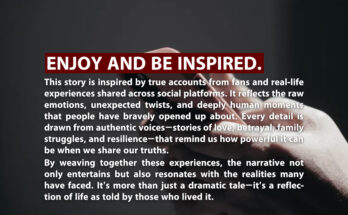Last weekend, I went out to dinner with a group of friends. The restaurant was upscale, and while most of them ordered cocktails, appetizers, and fancy entrees, I kept it simple—just a pasta and one drink. When the bill arrived, I suggested we each pay for what we ordered. That’s when Lisa, one of my friends, rolled her eyes and said, “Ugh, you’re always so cheap. Just split it evenly like everyone else.” Her tone was sharp, and it stung. I tried to laugh it off, but she wasn’t done humiliating me.
Lisa doubled down, loud enough for the whole table to hear: “If you can’t afford to eat out, maybe you shouldn’t come.” I felt my face flush with embarrassment. I didn’t argue. I quietly paid my share and left it at that. But the moment stuck with me. It wasn’t just about money—it was about respect. I’d always believed in fairness, and suddenly I was being shamed for it. I didn’t want to make a scene, but I knew I’d remember that moment for a long time.
A week later, Lisa invited me to her birthday dinner at a swanky rooftop restaurant. I hesitated, but everyone else was going, so I agreed. The place was even pricier than the last, and Lisa was clearly enjoying the spotlight. She ordered lavishly—multiple courses, expensive wine, the works. I kept things modest again, still feeling the sting from last time. I figured I’d just pay for myself and avoid drama. But karma had other plans, and it showed up right on cue.
When the bill came, Lisa suddenly “forgot” her wallet. She acted surprised, patting her purse and saying, “Oh no, I must’ve left it at home!” The table went silent. This was the same person who mocked me for not wanting to subsidize her meal. Now she was trying to dodge the entire bill. I looked around, waiting to see if anyone would speak up. No one did. So I calmly pulled out my card and said, “Don’t worry, I’ll pay for myself. Just myself.”
Everyone followed my lead. One by one, they paid only for what they ordered. Lisa was left staring at the bill for her extravagant feast, and she was fuming. She ended up having to cover it all herself. I didn’t gloat, but I won’t lie—it felt like justice. The same person who called me cheap was now exposed for trying to freeload. It wasn’t about revenge; it was about standing up for myself and showing that fairness isn’t weakness. It’s strength.
Later, Lisa messaged me saying I embarrassed her and made her look bad in front of everyone. I didn’t respond. I didn’t need to. Her actions spoke louder than anything I could say. She wasn’t embarrassed because of me—she was embarrassed because she got caught. That night wasn’t about money. It was about integrity. And I wasn’t going to apologize for having it. I’d rather be called cheap than be dishonest or manipulative.
Since then, I’ve been more mindful of who I spend time with. Real friends don’t shame you for setting boundaries. They respect them. Lisa showed me who she really was, and I’m grateful for that clarity. I’ve stopped feeling guilty for wanting fairness. If someone can’t handle that, they’re not someone I need in my life. I’ve learned that sometimes, the best way to respond to disrespect is with quiet dignity—and letting karma do the rest.
So here’s what I’ve taken away: never let anyone make you feel small for doing what’s right. Whether it’s splitting a bill or standing your ground, your values matter. People who mock you for them are revealing their own insecurities. And when they try to take advantage, life has a way of flipping the script. That night, karma didn’t just hit back—it served the bill with interest.


